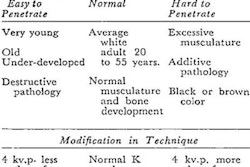Spiritual beliefs and a distrust of clinical research may partly explain why Black patients choose not to participate in cancer trials, according to research presented September 30 at the American Society for Radiation Oncology (ASTRO) annual meeting.
In a recent survey of patients in Baltimore, MD, Black people were more than five times as likely to agree with statements that death or illnesses were determined by God’s will and that God, not research, determined wellness, reported Charlyn Gomez, a medical student at the University of Maryland.
In addition, 20% of Black people said they agreed that research harmed minority populations, compared with zero non-Black patients, Gomez noted.
“If we want to improve recruitment of underrepresented people in clinical research, we cannot just talk about trial goals,” she said.
Despite mandates by the National Institutes of Health (NIH) to increase women and minority populations in clinical research, percentages of racial and ethnic minority populations in cancer trials have remained low, Gomez explained.
To explore whether psychosocial factors may be playing a role, between October 2023 and February 2024, Gomez and colleagues asked 97 patients – 30% of whom were Black – if they would participate in a clinical trial and to fill out surveys describing the factors they might consider when making this decision. They were asked to complete the surveys while waiting to see their cancer physicians.
“Our research has identified some really important themes that should be discussed with patients as part of the recruitment process, such as spirituality or faith, as well as recognizing the elephant in the room that is a justifiable mistrust stemming from structural racism and historical practices in clinical trial programs,” Gomez said.
Ultimately, the data is preliminary, and the researchers plan to further characterize these factors through focus groups, with the goal of designing interventions, particularly for patients of color, Gomez concluded.



















